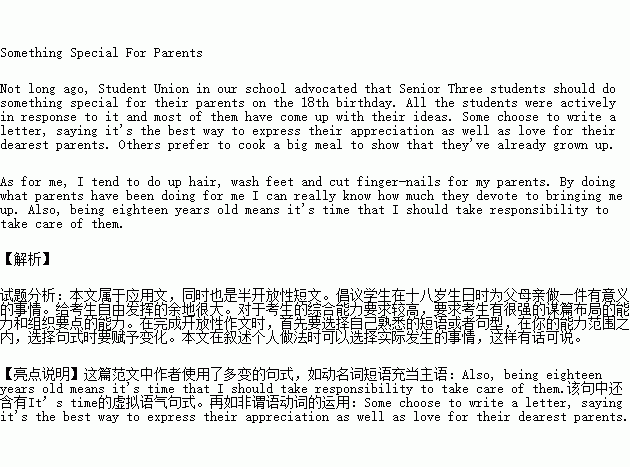��Ŀ����
�������
ǰ���ã���Уѧ���������ѧ���������飻ʮ���������ʱ����Ϊ���ǵĸ�ĸ��һ����������¡�ͬѧ�ǻ�����Ӧ���ױ����Լ��������������������Ϣ���ԡ�Something Special For Parents����Ӣ��дһƪ���ġ����ݰ�����
1�����������й�ѧ���ᳫ�����Ϣ��ͬѧ�ǵķ�Ӧ��
2��������������ɡ�
ע�⣺1������120���ң����ĵı�������Ѹ���(�������ܴ���)��
2�������ʵ��������ݣ�
3������ʹ����ʵ������ѧУ���ơ�
Something Special For Parents
Not long ago Student Union in our school advocated that��
��ϰ��ϵ�д�
�����Ŀ


